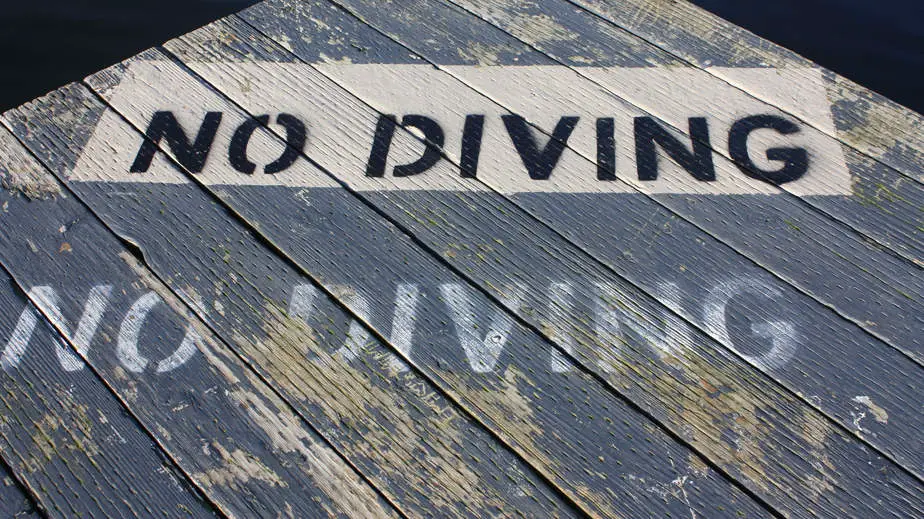We’ve written various lengthy articles discussing how surprisingly accessible scuba diving is. However, we do not want to give the impression that literally anybody can go scuba diving. There are certain people who, for one reason or another, probably shouldn’t go scuba diving because their unique circumstances mean it would be extremely dangerous for them.
Who shouldn’t go scuba diving? Some obvious answers are people who have serious medical conditions, people who don’t know how to swim, people who aren’t certified to scuba dive, people who aren’t fit enough to dive, people who haven’t been scuba diving in years, people who have drank alcohol recently, people who are sick or injured, and so on. There are also some not so obvious reasons which we’ll cover as well.
In this article, we’ll explain why some people should probably stay away from scuba diving until they have resolved their issues. Just because you aren’t fit to dive right now doesn’t mean scuba diving is forever out of your reach. You can speak with a doctor, take swimming classes, improve your body, eat healthier, and so on. We’ll discuss the various ways one might approach their problem so that they can go scuba diving at some point, if they really want to.
You should not scuba dive if you:
Are below the minimum age
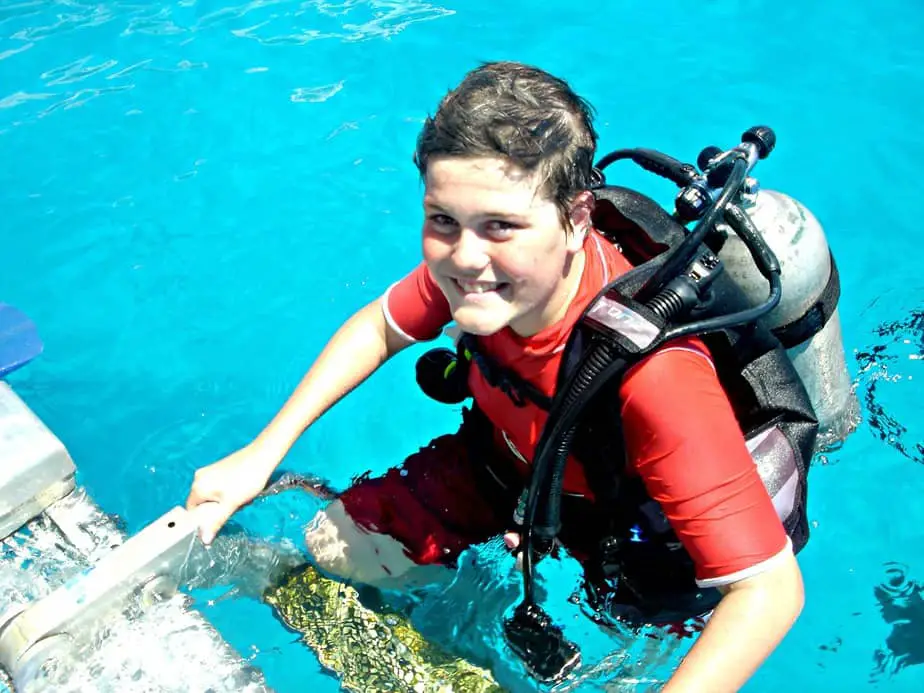
Obviously, young children such as toddlers should not be scuba diving. But as they get older into the pre-teen and teen years, can they start scuba diving? The answer is yes. It will depend on the particular training agency one takes courses with, however for PADI, the minimum age to learn scuba diving is eight years old.
From ages 8-10, children can learn the absolute basics of scuba diving in a confined pool such as mask squeeze, hand signals, ear equalization, and so on. They can even learn a bit about underwater photography, how to control their buoyancy, and how to be more situationally aware. The maximum depth of the pool is only 2 m, and an instructor will always be present, so it is very safe.
Children between the ages of 10-14 can officially take the Junior Open Water Diver course. Despite the name, the course material and training is exactly the same as the regular Open Water Diver course. This will be an uphill battle for them, because at these young ages, they may not be used to the course load and expectations placed on them.
At the end of it, the child will earn their Junior Open Water Diver certification, which has the limitation of being initially depth restricted to only 12 m / 40 ft from ages 10-11, increasing to the standard depth limit of 18 m / 60 ft at age 12 and upwards, and they must be accompanied by a scuba certified parent, guardian, or dive professional for every dive.
After a child is 15 years old with a junior certification, he or she can order a full-fledged (non-junior) certification card online without needing to take the course again. By the way, there is no maximum age for diving, and certification cards never expire.
Are pregnant
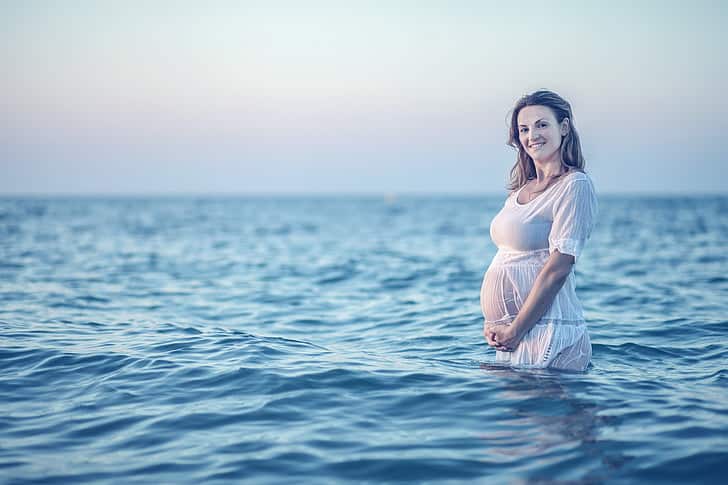
You should not scuba dive if you are pregnant. No ifs and buts about it. The same risks that can affect anyone else would also apply to the fetus, who is unable to do anything about their decompression problems the same way we can. The fetus would also be at risk of gas embolism and malformation.
If you want to still explore the waters while pregnant, why don’t you take up snorkeling instead for the time being. Since snorkeling is done at the surface of the water where there is no water pressure acting on you, it is perfectly safe to do in the same way that swimming would be okay to do during pregnancy as well. As long as you aren’t duck diving, there should be no risk of any decompression problems or gas embolism.
Have a disqualifying medical condition
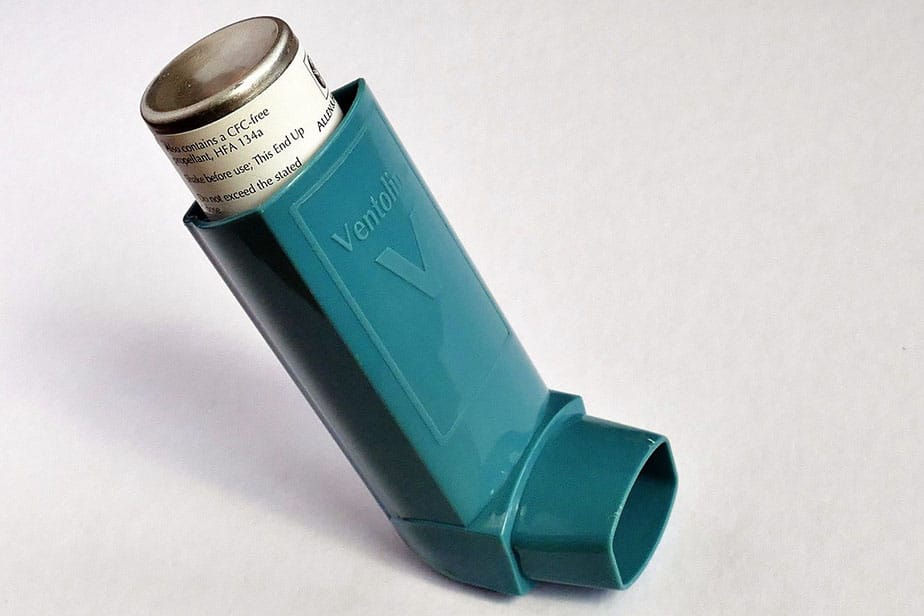
There are numerous medical conditions that would make scuba diving particularly dangerous for affected individuals such as asthma, diabetes, heart disease, cancer, pneumothorax, or if one has had decompression sickness (DCS) recently.
Before diving, all participants are asked to fill out a medical screening form that is used to determine if you are fit to dive. This form will ask you about your medical history, and will cover what it calls temporary, relative, and severe risk conditions.
As we mentioned, just because you have a medical condition doesn’t mean there aren’t workarounds. However, you will have to first see a diving physician about your condition and let them know that you wish to go scuba diving. We don’t want to sound like downers, but generally, someone with a “severe” risk condition will not be cleared to dive.
Thankfully, times are changing. In the past, someone with asthma or diabetes would immediately get turned away at the dock. Now, medical advancements have made it possible for one to manage their symptoms. Again, you’ll have to see a doctor first to confirm this, but it’s no longer a hard no.
Temporary risk conditions are, as the term suggests, temporary problems that can be fixed once the affected individual resolves it through treatment.
Relative risk conditions can also be worked around by changing medications or limiting one’s maximum depth limit, and so on.
If you have a severe risk condition, you probably shouldn’t go scuba diving. It’s just not worth the risk, and the doctor probably won’t clear you to go diving anyways.
Scuba diving subjects participants to extreme stress, both from the water pressure and from the physical exertion depending on the conditions. It is imperative that you see a diving physician so that they can properly assess your true condition.
Haven’t seen a diving physician in some time
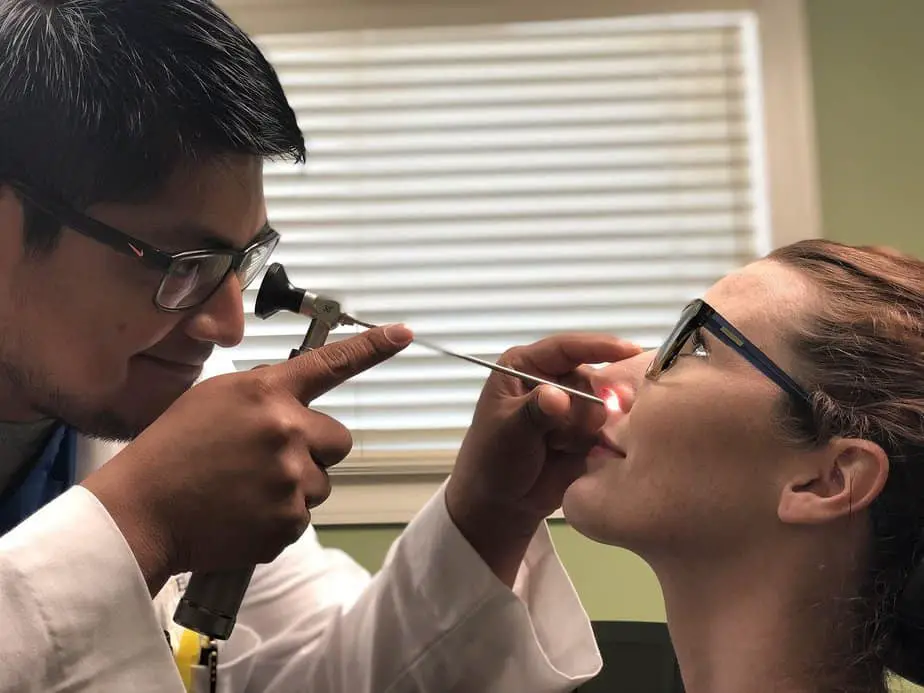
An unfortunate fact of life is that as we get older, our bodies will deteriorate. Just because you were fit and healthy in your youth (or at least, when you got your certification) doesn’t mean that your health is the same years later.
Generally, it’s recommended that scuba divers see a diving physician at least once every 2 years up to age 44. At age 45 onwards, you should annually. Though these may be guidelines, it is important you adhere to them.
Divers aged 50 and older are at 10x the risk of a cardiac-related death than those younger than 50. If you suspect your health has changed for the worse, or if your doctor has told you to come even more frequently, then ignore these guidelines and see a doctor even earlier.
It’s important to review your health and also to maintain it. Many of the severe risk conditions such as diabetes or cardiac diseases can be prevented through regular exercise and eating a healthier diet. However, the point still remains. Particularly if you’re getting on in years, you should be regularly seeing a scuba doctor to determine your fitness to dive.
Are in poor physical shape
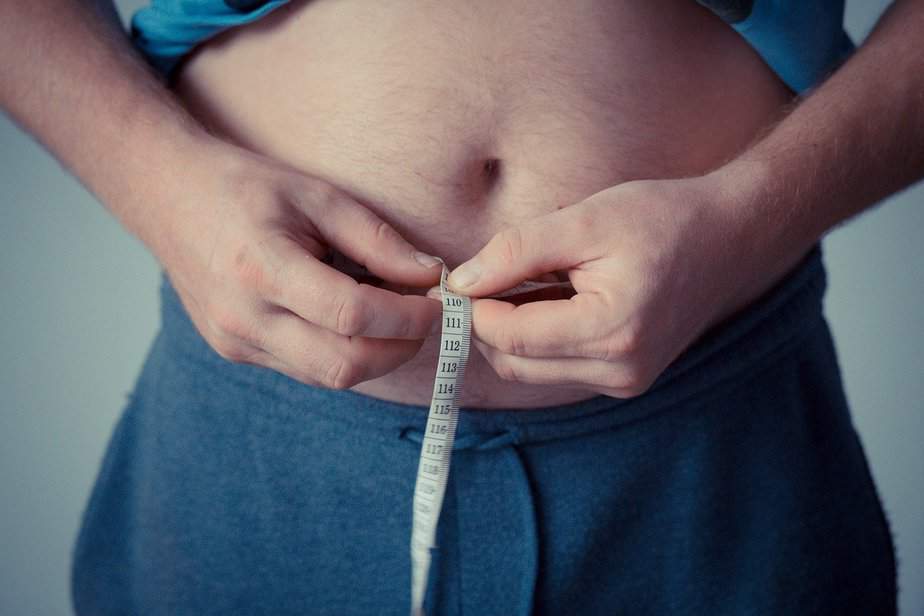
One of the reasons why scuba diving is so accessible is that there are few restrictions, and there certainly aren’t any weight limits to scuba dive. With that said, you should still be reasonably fit to dive.
Even if you aren’t overweight, rather you are simply out of shape due to a sedentary lifestyle or unfit due to smoking, you are doing yourself no favors when scuba diving. Smoking is even worse for freedivers who have to rely entirely on their lung capacity to sustain them underwater. You will be putting yourself at risk as well as a buddy who needs to watch over you.
In the medical screening form, it will ask if you can walk 1 mile / 1.6 km in under 14 minutes, or if you can swim 200 m/yards without resting. Another test is if you can tread water for 10 minutes without resting or using a buoyancy aid. If the answer is no, you are not fit to dive.
You should also consider if you have the stamina to deal with rough water conditions. If you are required to have a sudden burst of energy or physical exertion to swim out of a current or away from danger, do you think you are capable of doing that?
Another limitation to being overweight is that it will be harder to find gear that fits. You need a wetsuit that fits, as well as a BCD, dive computer, and so on. In a way, these practical limitations are the reason why scuba diving does not have arbitrary weight limits; there are enough impediments already.
Are doing it for someone else
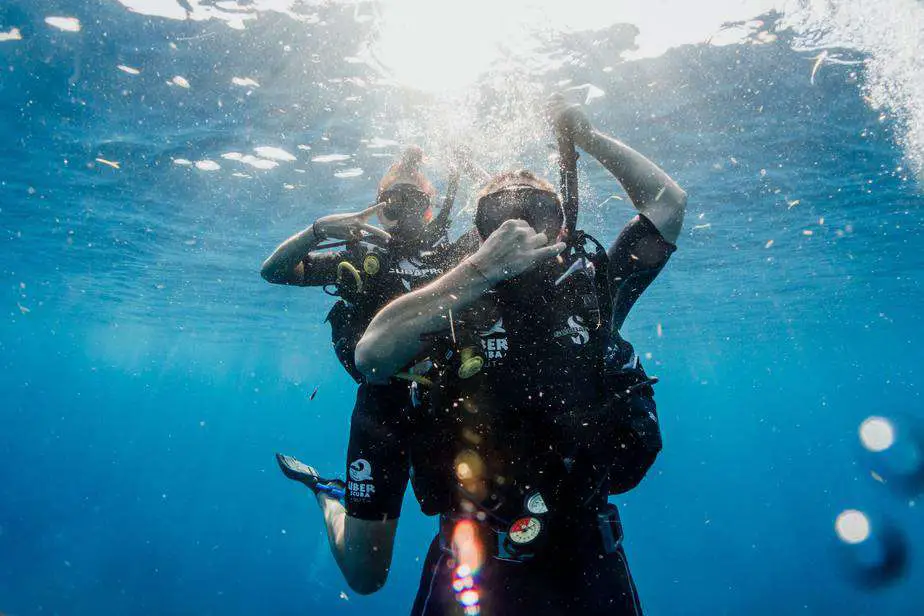
We know that some people find scuba diving to be boring, hard, or incredibly scary. Some might even feel it’s too dangerous for them. Yet they might go along with it anyway because a friend or family member is pressuring them to do it.
Personally, we feel that scuba diving is worth it. Is it hard? Sure, but technically even a pre-teen can do it. Is it boring? Not if you try to improve your skills and travel to new places to dive. Is it scary? At times, if you encounter a shark or rough underwater currents, but that’s why we learn to dive with a buddy and have emergency procedures to follow.
However, at the end of the day, it’s up to the individual to decide if scuba diving is worthy of their time, money, and effort. That said, we believe that forcing yourself to do something just because someone else wants you to is generally not a good idea. You will not have much fun, if at all, you might be nervous or scared, and you really need to talk things out with the other person.
Are under the influence of drugs

In the same way you shouldn’t drink and drive, you shouldn’t drink and dive. Scuba diving and alcohol don’t mix well, and will put you at extreme risk. The same thing can be said for recreational drugs.
Both drugs and alcohol (technically alcohol is also a drug, but we like to single it out for emphasis) can impair your coordination and judgment. It also decreases your inhibitions which is great for social situations, but absolutely terrible for scuba diving.
While impaired, divers have been noted to ignore safety protocols. They may ascend or descend too quickly, forget to check their pressure gauge, or believe that they can stay underwater much longer than they ought to.
Alcohol, in particular, has some downsides that are extremely negative for scuba diving. Other than the poor judgment which is already a huge deal, alcohol will also dehydrate you. Alcohol is a diuretic, meaning it causes your body to increase urine production and pee out your fluids.
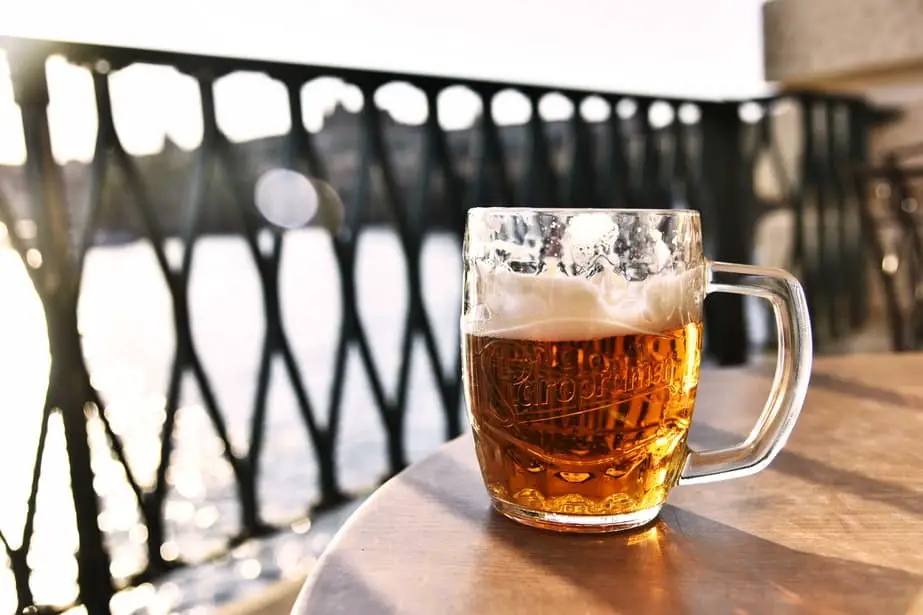
Dehydration is a major concern when scuba diving. When you’re dehydrated, you have a higher risk of getting decompression sickness. Most divers aren’t replenishing their fluids underwater, and even if you are one of them, that doesn’t mean alcohol gets the thumbs up.
Some additional side effects of alcohol include: loss of coordination, dulled perception, reduced core body temperature (risk of hypothermia), increased blood pressure, passing out, and vomiting.
Even drinking alcohol after diving is not necessarily a good idea. It can take anywhere from 12-24 hours for alcohol’s impairment to wear off. Even if you feel absolutely fine, you are not in the right state of mind to judge that about yourself. So if you have another dive lined up early next morning, do not consume any alcohol or recreational drugs even after your last dive of the day.
Lastly, think of your dive buddy. Or rather, put yourself in your buddy’s shoes (fins?). Imagine you’re about to dive and your buddy admits to you that he’s nursing a hangover or that he’s drunk or that he’s high. How safe do you feel? Is he able to watch your back? Are you expected to rescue him if he does something stupid? Exactly. It’s really inconsiderate and dumb. Don’t be that guy.
Are sick
If you’re feeling sick, your priority should be to rest up, not push your body past its limits by scuba diving. In addition to generally feeling worse, diving when sick will increase your chances of a squeeze injury (barotrauma).
For instance, congestion is a symptom of the common cold, and this is dangerous for a diver to deal with. When your airways are congested, it makes equalizing your mask and ears much harder.
Other illnesses might make you more susceptible to decompression sickness. Basically, it’s all negatives, and severe ones at that. Don’t go scuba diving if you’re feeling sick.
Are tired

Much of what was described above can also apply to diving when tired. Also, did you know that being sleep deprived has similar effects to being drunk? At only 17 hours without sleep, our alertness starts to match people whose blood alcohol concentration is 0.05%, which is what the US law considers to be legally impaired.
Unfortunately, being on vacation is not always conducive to a good night’s rest. Whether it’s jetlag, the uncomfortableness of sleeping in a different bed, or staying up too late because there’s just so much you want to do, it’s really easy to be sleep deprived.
However, think of it this way. A good night’s sleep is necessary to physically and mentally prepare you for another exciting day. If you want to enjoy your scuba diving to the maximum and decrease the chances of decompression sickness or other effects similar to being drunk, then try to get at least 8 hours of sleep. Wear earplugs, a sleep mask, take some melatonin, and hit the hay.
Are going on a plane or up a mountain after

There are a few things you shouldn’t do after scuba diving, and two things you really shouldn’t do are to go on an airplane or go up a mountain. Doing so will drastically increase your chances of getting decompression sickness.
To understand why this is a problem, you need to understand how one gets decompression sickness in the first place. When scuba diving, you will breathe air under pressure. This causes your body to absorb more nitrogen than it typically would (oxygen as well, but that’s not an issue at the moment). During your ascent, this excess nitrogen will off-gas – be released from your body. If this happens too quickly, bubbles form and that’s how you get decompression sickness.
There is a reason why we stay under the no-decompression limit. If we stay underwater for too long, we need to do a more extensive off-gassing process. For non-decompression dives, a 1-3 minute safety stop close to the surface will probably suffice.
However, many people let their guard down after they have done their decompression/safety stops. They think, “I’ve done the necessary stops. I’m safe now.” Unfortunately, no, you’re not. You still need long enough of an interval at the surface to fully off-gas.

What many don’t realize is that going from their current elevation to an even higher one too soon has a similar effect as going from the underwater depths to the surface – you’re going from a higher pressure environment to a lower pressure environment.
In other words, going on an airplane or up a mountain too soon after diving will cause nitrogen to start releasing again. If the off-gassing process happens too rapidly, bubbles can form and result in decompression sickness.
Typically, it’s advised that divers wait at least 24 hours between the end of their last dive and the departure time of their flight. You need to leave an appropriate interval for going up a mountain as well. In other words, you probably shouldn’t dive and do either of these two activities on the same day.
Aren’t a strong swimmer
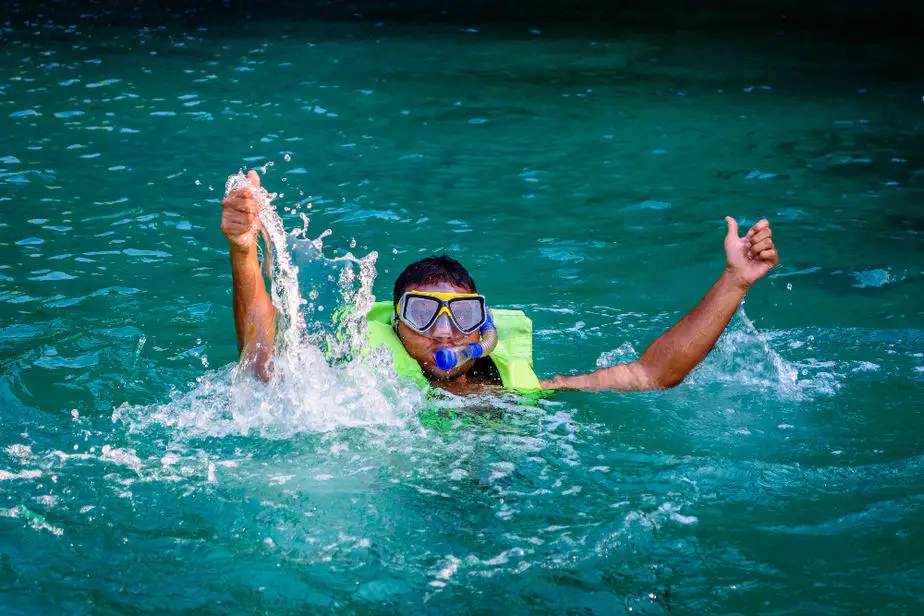
Having strong swimming ability is not a requirement, but it is such a huge benefit if you are. Technically, the minimum swimming requirements are that you can swim 200 m/yards without stopping and without the assistance of a buoyancy aid. You must also be able to tread water for 10 minutes with the same limitations. If you can do this, you’ll pass the swimming portion of the exam.
However, we recommend you push yourself further than this if you want to be even safer and enjoy scuba diving even more. Just meeting the basic requirements means that you will be ill-prepared for rough or unexpected conditions.
With that said, if you’re a non-swimmer, you can take a Discover Scuba Diving class to get a primer on what diving is like. If you think it’s interesting, you can take some swimming classes to get your swimming ability up to snuff, and then take the Open Water Diver course. Heck, even if you are already certified, maybe you want to take some swimming classes to bolster your swimming skills.
Are alone
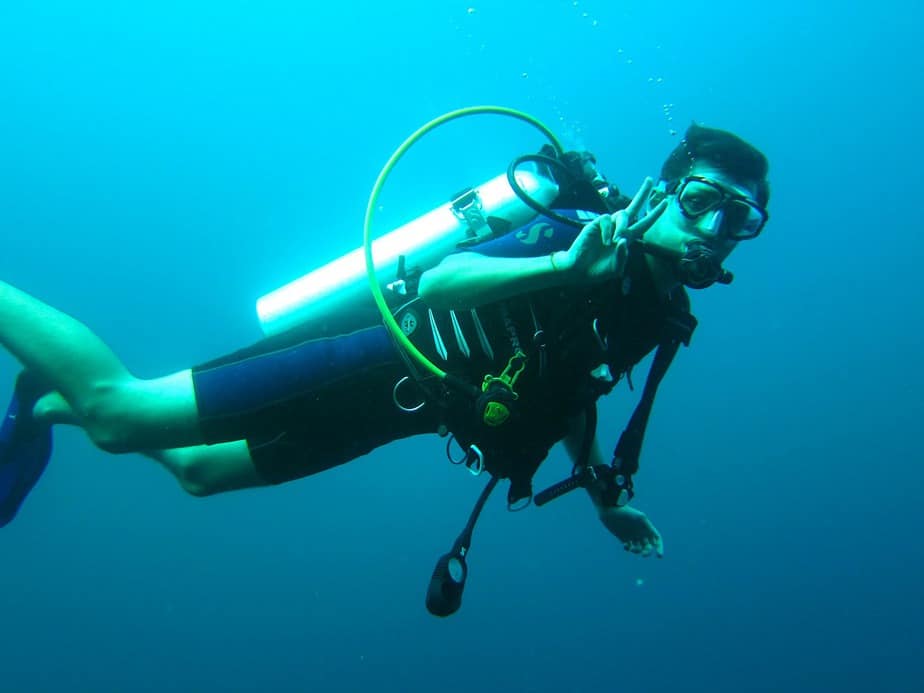
To be fair, solo diving is a completely legitimate endeavor with official certifications available.
However, the mistake is when divers think they can simply do it without having the proper training. Preparing for a solo dive is also a lot different than a regular dive. You cannot rely on someone to help you out, even in an emergency. You must be exceptionally self-reliant and skilled.
Solo divers must bring extra, redundant gear, so that they have backups of all essential equipment in case something malfunctions. For instance, a backup scuba tank, backup dive computer, and so on.
There are many benefits to diving with a buddy. Sometimes accidents are unexpected and unavoidable. If you were to suffer a medical emergency underwater or strong currents take you away, there’s almost nothing a solo diver can do about it. At least with a buddy, they can call for help or attempt a rescue.
Plus, if you’re close with your dive buddy, you can make some great memories together. For normal, recreational divers, diving with a buddy is non-negotiable.
Are diving too soon after a dive
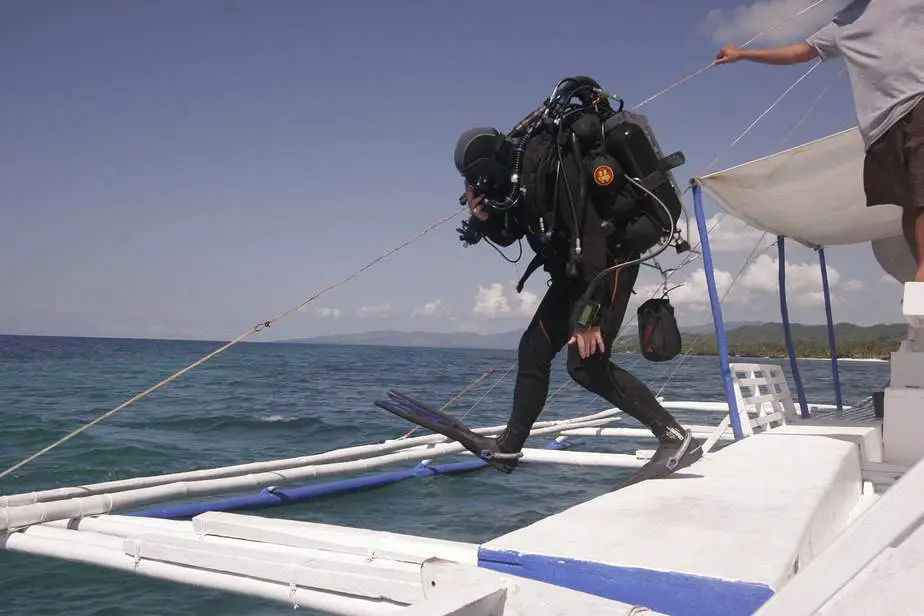
As we mentioned, there should be a sufficiently long surface interval between dives so that the absorbed nitrogen can off-gas at a safe rate. If you plan on doing repetitive dives, you need to keep close track of how long your surface intervals your no-decompression limits are.
The length of the surface interval needed depends on your most recent dive and the dive you’re planning, taking into account things like dive depth and bottom time.
In the past, divers had to manually calculate their surface intervals using dive tables. Thankfully, nowadays a dive computer will do these calculations for you. Dive computers can make these calculations in real time for the most accurate data.
One thing you’ll notice is that your no-decompression limit will get shorter and shorter the more dives you do in a day. That is because the nitrogen in your system may not have fully off-gassed, so you will reach that limit much faster on subsequent dives.
Are using the wrong equipment for the dive
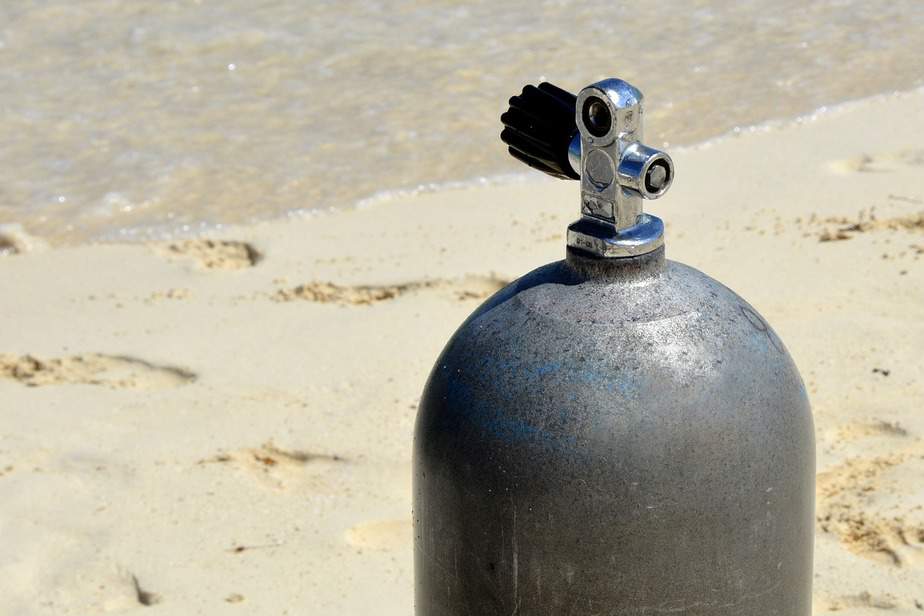
Many people purchase their equipment with diving in a tropical destination in mind. They’ll have thin wetsuits (3mm or less), a traditional regulator, and so on. If this diver suddenly decided to try cold water diving, they are unfortunately ill-equipped for that.
You may need to purchase an entirely new exposure suit for cold water diving, such as a thicker wetsuit or even a drysuit. You certainly need a cold-water regulator because a regular one might literally freeze on you. Getting cold is not only miserable, but the risk of hypothermia is higher, as is the risk of decompression sickness.
Another factor to consider is what breathing gas to use for your dive. Just because you are diving nitrox does not mean that you can dive deeper, for instance. Nitrox is primarily used for longer dives at shallower depths. Deep diving requires trimix, and there are various trimix mixes to choose from. These aren’t things you need to worry about until you have received the proper training for them.
Aren’t certified
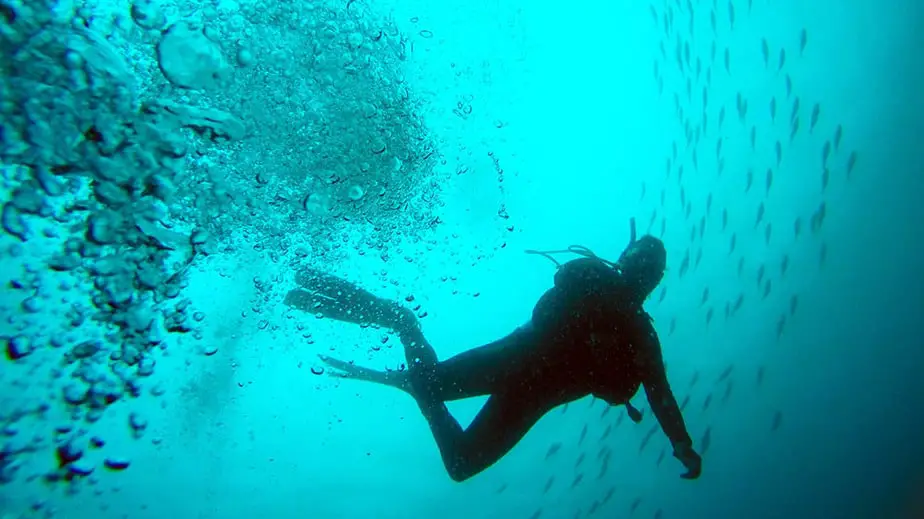
There are legitimate ways that you can scuba dive without getting certified. You can take the aforementioned Discover Scuba Diving course or its equivalents offered by other training agencies. You can try a SNUBA diving session, which is kind of like scuba diving without a tank strapped to your back.
If you’re living in a landlocked state, you might be able to do aquarium dives. Furthermore, most dive resorts offer some kind of resort diving course for first-timers. These are just some of the ways someone can legitimately go scuba diving in a safe environment without being certified.
Unfortunately, it’s incredibly easy for someone to go scuba diving on their own without a license. There’s no rule against someone purchasing scuba equipment or filling a scuba tank without a certification card. After all, you could be buying scuba gear as a gift for someone, or filling up a tank with compressed air for use with airsoft guns. There are legitimate reasons why one would not need a certification to purchase something, which is why they don’t ask for most purchases.
This means that someone could purchase all of their gear, go to the nearest shore, and attempt shore diving without the proper training. This is NOT recommended. This warning is for your own sake; you can easily lose your life if you don’t know what you’re doing. Don’t go scuba diving if you aren’t certified.
Aren’t comfortable with the conditions

You might hear, in the context of athletics, to push beyond your limits. However, it doesn’t really apply to scuba diving. We have maximum depth limits and no-decompression limits for a reason. Pushing past them serves no benefit other than to increase your risk of decompression sickness.
Unfortunately, some younger divers may want to satisfy their ego, or they may be pressured by their peers to do something reckless. Diving too deep or diving in extremely rough conditions to show off to your peers is incredibly reckless. It can easily lead to an unexpected accident.
All recreational divers should carefully assess their skill and the current weather conditions and formulate a dive plan based around that. They need to make sure that the conditions they are in are suitable for their level.
Never allow others to make you feel like you need to keep up with them. For instance, if you notice others descending rapidly, don’t try to keep up if you aren’t comfortable. This is especially true if you’re having trouble equalizing and are experiencing ear pain. You might even need to temporarily ascend to make it easier to equalize.
Communicate to your buddy that you are inexperienced and need to go at your own pace. Any reasonable diver will understand and work with a beginner instead of pressuring them to do something they aren’t comfortable with.
Aren’t in the mood
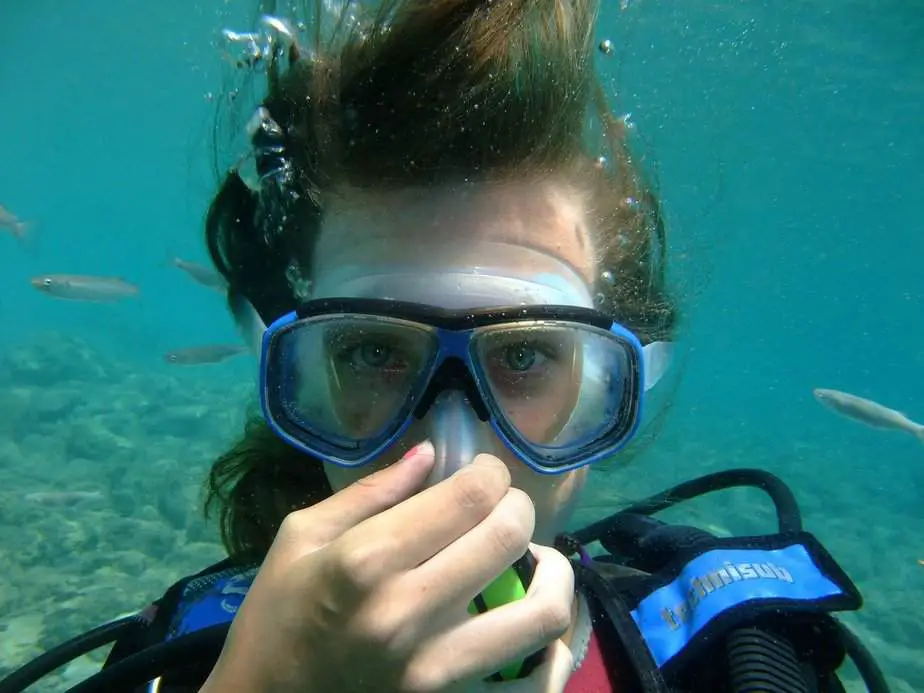
Similar to the point above, if you are no longer in the mood for whatever reason, you should be able to skip the dive. If you’re already in the middle of the dive and find it uncomfortably cold or something, then end the dive at any time.
If you don’t feel up to diving for any reason, don’t try to rationalize why you need to stay. Forcing yourself to do a hobby is a fast way to make you hate it. There will always be a next time.
Can I scuba dive with a physical disability?
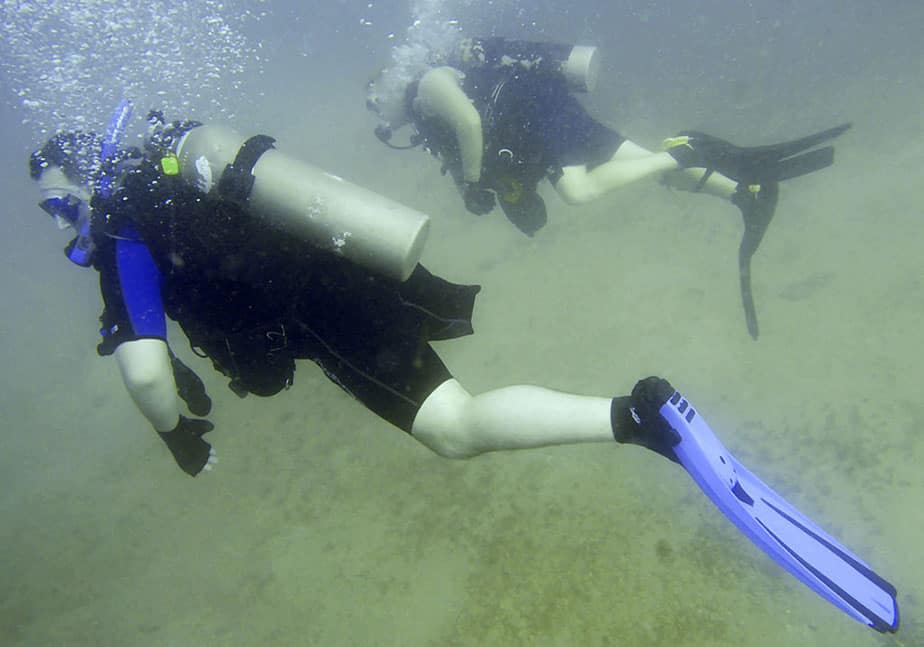
Amazingly, despite all of the things that can disqualify you for diving, having a physical disability does not prevent you from scuba diving. In fact, there are organizations like the Handicapped SCUBA Association (HSA) that will assist divers with physical disabilities so that they can experience this amazing activity.
Additionally, scuba diving has many therapeutic effects for disabled persons. First, it’s a great way to exercise in a low-impact way that will challenge one’s endurance and cardiovascular capabilities. Also, scuba diving has been found to be an effective treatment for PTSD.
Reportedly, hundreds of disabled divers (note: you don’t have to be disabled to feel this benefit) have discovered that “they feel less anxiety, fewer headaches, and a feeling of freedom that was previously missing from their life.”
There are also various physical benefits that a weightless experience can provide, as we alluded to briefly. Those suffering from severe injuries can reduce swelling, take pressure off joints, decrease neck and back pain, and much more.
If you have a physical disability, don’t feel like this option is cut off from you; in fact, it may just be the solution to help you overcome your pain or anxiety.
Parting words
It might seem like there are more reasons to not scuba dive than to dive. However, most of these reasons can be addressed simply by having a little bit of common sense and putting in some effort to stay in shape.
Honestly, almost anybody can scuba dive. If even a pre-teen can scuba dive, there really isn’t much reason why you couldn’t either. The biggest impediment to scuba diving are medical conditions that cannot be cured. Almost anything else can be worked on until you overcome the problem.
So, who shouldn’t scuba dive? If you have a condition that can be exacerbated by diving, or you refuse to act sensibly, then don’t dive.

